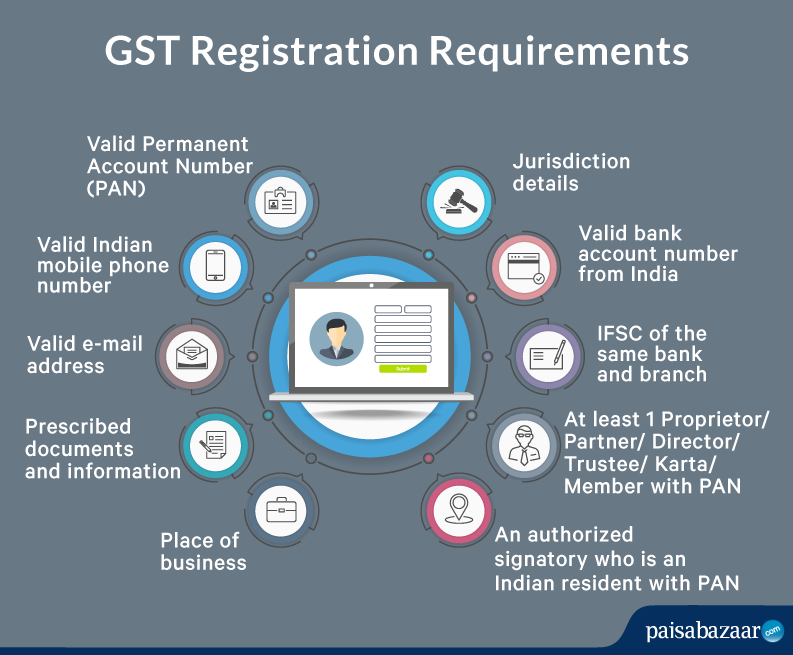Why Singapore GST Registration is Vital for Your Start-up
Why Singapore GST Registration is Vital for Your Start-up
Blog Article
The Ultimate Overview to Simplifying the GST Enrollment Process and Requirements for Small Company Owners

Comprehending GST Fundamentals
To realize the basics of the Product and Provider Tax (GST) system, local business owners need to initially understand its underlying principles and implications. GST is a value-added tax levied on the majority of goods and solutions for residential usage. It aims to improve the tax process by replacing several indirect tax obligations enforced by the state and central federal governments. Under the GST routine, businesses are called for to sign up and gather tax obligation in behalf of the government, guaranteeing openness and compliance.
Among the essential principles of GST is input tax debt, which allows services to declare credit report for tax obligations paid on their purchases. This mechanism prevents the plunging result of tax obligations and promotes efficiency in the tax obligation system. In addition, GST is a destination-based tax, suggesting that the tax obligation is levied at the point of intake as opposed to the factor of origin. This makes certain reasonable circulation of tax obligation income among states based on where the goods or solutions are consumed. Recognizing these standard concepts is crucial for local business owners to browse the intricacies of the GST system and make sure compliance with the legislation.
Eligibility Requirements for Enrollment
Having actually developed a fundamental understanding of GST concepts, local business proprietors need to now satisfy details qualification standards to wage the enrollment procedure. In India, entities engaged in the supply of products or solutions with a yearly accumulation turn over exceeding Rs. 40 lakhs (Rs. 10 lakhs for special group states) are required to register for GST. Additionally, specific organizations such as those included in inter-state supply of items, casual taxed persons, and those needed to pay tax under the reverse fee device have to register for GST regardless of their turn over. Services that were registered under the previous tax obligation routine (VAT, solution tax obligation, and so on) are also mandated to sign up under GST. Agricultural organizations that just supply generate out of main production are exempt from GST enrollment. It is important for company owner to thoroughly evaluate their eligibility based on these standards to make sure conformity with the law and avoid any kind of charges for non-compliance.
Records Required for GST Enrollment

Simplified Registration Refine Steps
Following the collection and verification of the requisite documents, the enrollment process for GST can be navigated with a collection of streamlined actions made to promote effective compliance for tiny organization proprietors. Upon successful verification, an Application Reference Number (ARN) is issued, showing the conclusion of the GST enrollment process. By complying with these streamlined actions, little business owners can properly register for GST and guarantee conformity with tax obligation policies.
Tips for Ensuring Compliance
To keep regulative adherence and functional stability, diligent oversight and proactive procedures are crucial in ensuring compliance with GST needs for small organization proprietors. Local business owners need to remain updated with GST regulations, submitting target dates, and any read review kind of modifications in tax prices to avoid charges and preserve a great standing with tax obligation authorities. One crucial suggestion for compliance is to keep exact and thorough records of all purchases, including expenditures, receipts, and invoices associated with GST. Regularly integrating financial records with GST returns can help in determining and remedying any kind of disparities promptly. Additionally, performing periodic interior audits or looking for specialist aid can guarantee that the company is following all GST policies properly. It is additionally crucial for local business proprietors to purchase GST-compliant audit software application that can streamline the tax obligation declaring process and lessen mistakes. Attending GST recognition workshops or training programs can boost understanding and compliance with GST guidelines, ultimately profiting the company in the lengthy run.
Verdict
Finally, local business owners should understand the fundamentals of GST, satisfy the eligibility criteria, collect required files, and follow the streamlined enrollment procedure actions to make sure compliance. By streamlining the GST enrollment procedure and requirements, small company owners can avoid charges and operate their services smoothly within the lawful structure - Singapore GST Registration. It is critical for local business owners to remain educated and compliant with GST policies to preserve a successful service procedure
Tiny organization proprietors looking for GST enrollment have to guarantee they collect and send the necessary documents to finish the enrollment procedure effectively. The papers required for GST registration usually consist of proof of organization registration or incorporation, FRYING PAN (Long-term Account Number) card of the organization identification, entity and address proof of the promoters/partners/directors, pictures, address evidence of the place of business, financial institution account statements or terminated cheques, and authorization types. Participating in GST awareness workshops or training programs can boost understanding and conformity with GST guidelines, eventually profiting the company in the lengthy run.
By simplifying the GST enrollment procedure and demands, small company owners can avoid anonymous charges and run their services efficiently within the legal framework. It is critical for small business proprietors to stay educated and certified with GST regulations to preserve a successful business procedure.
Report this page